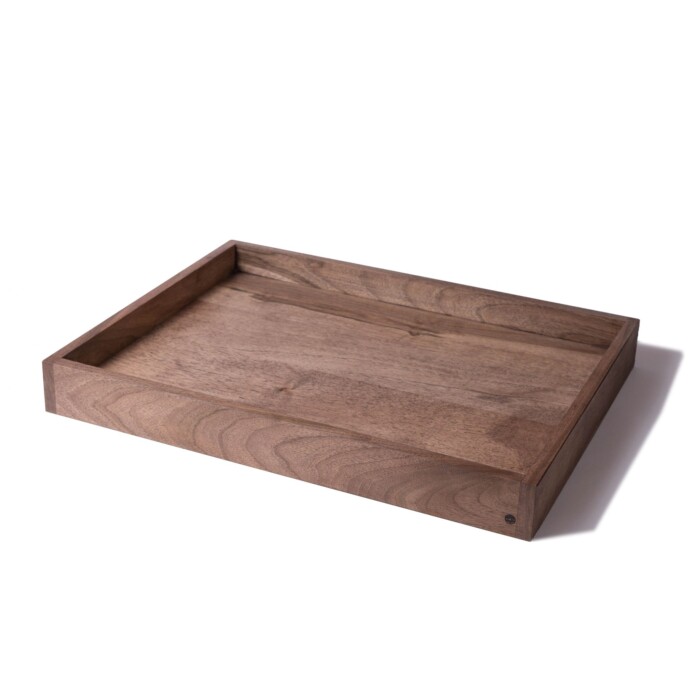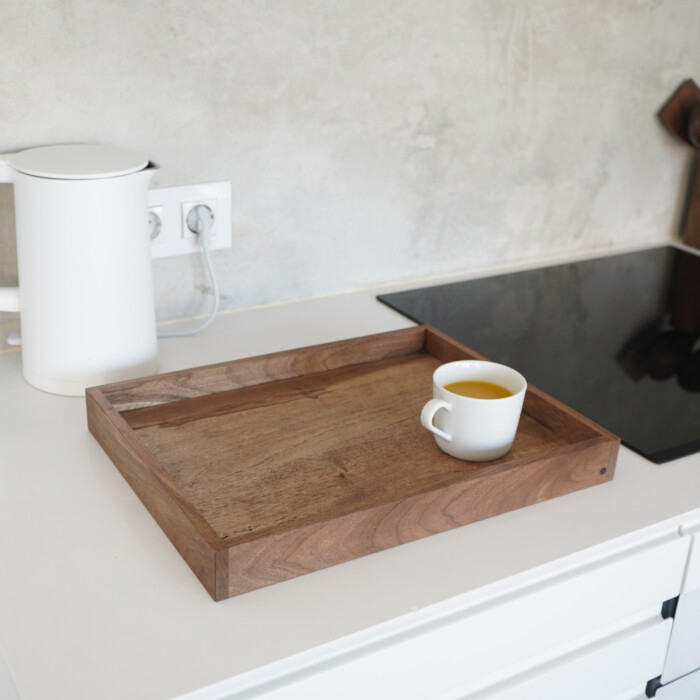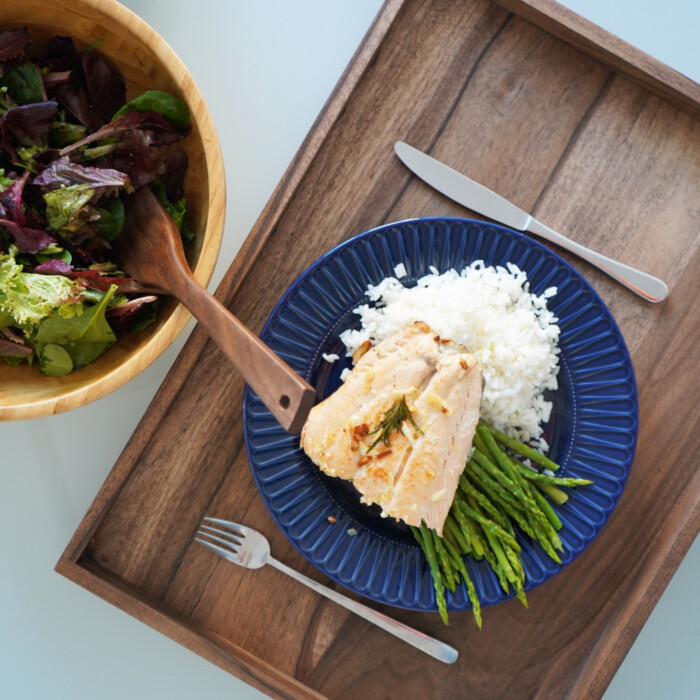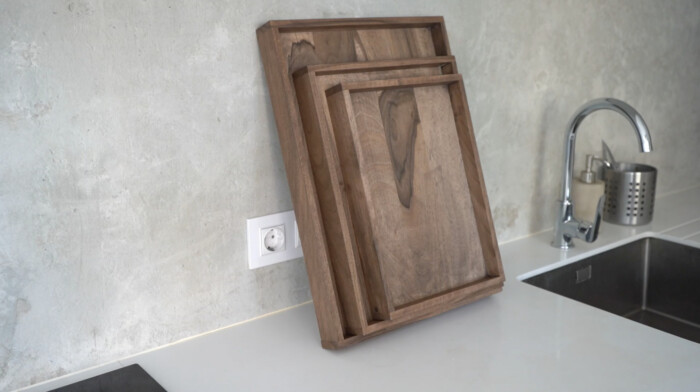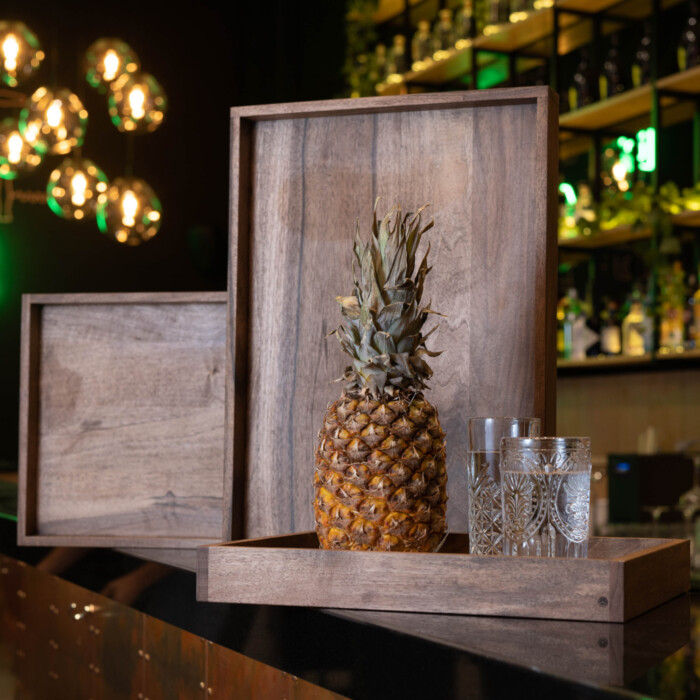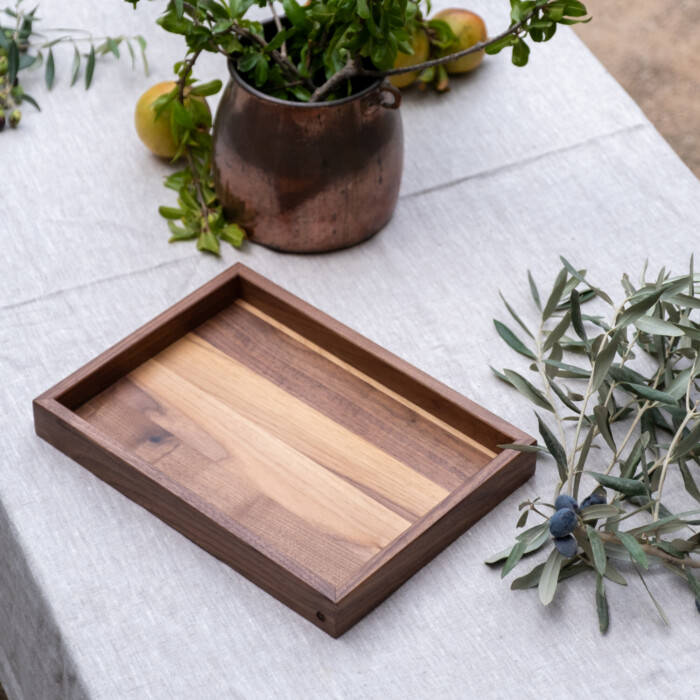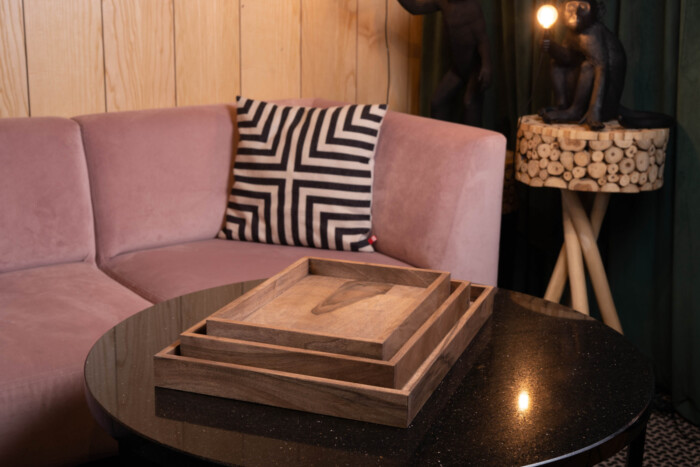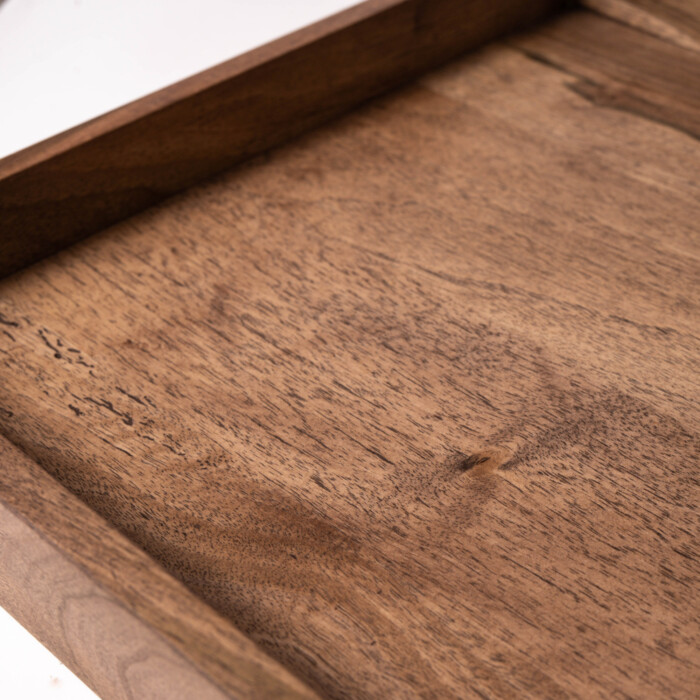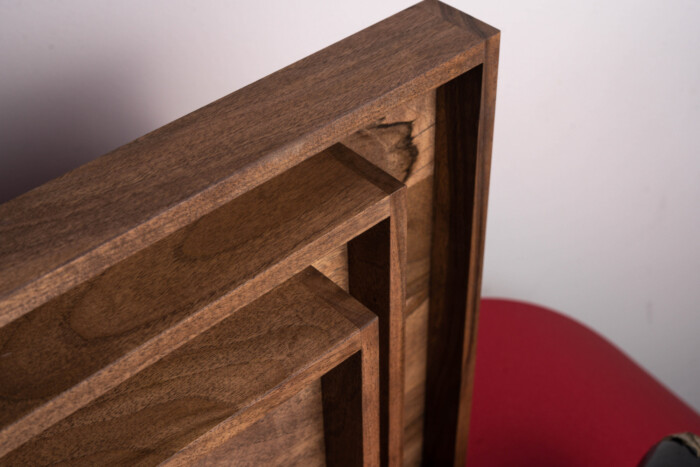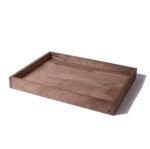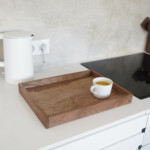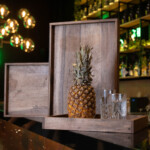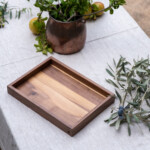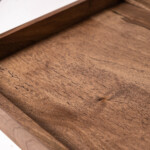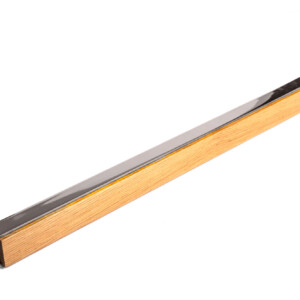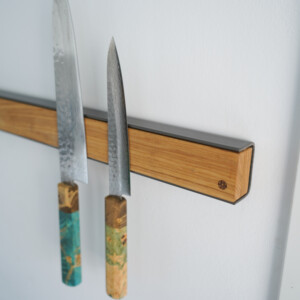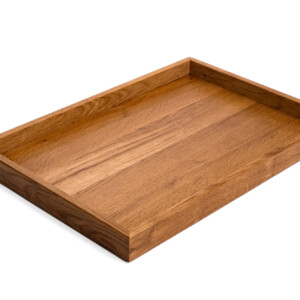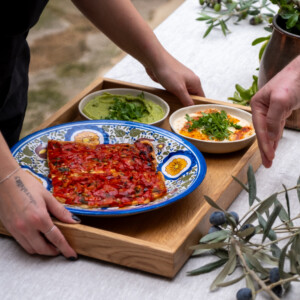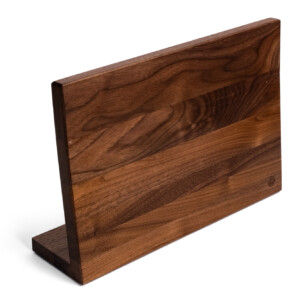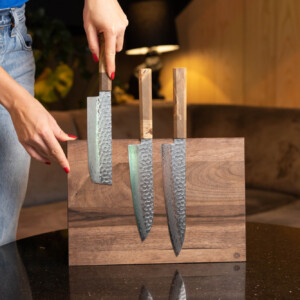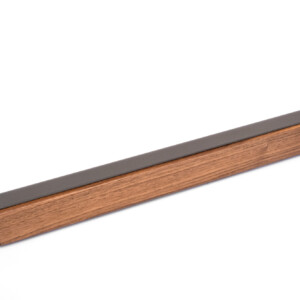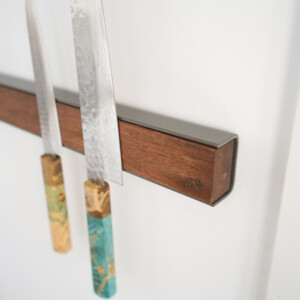Product Description
Introduce a touch of Japanese elegance to your home with the Oishya medium walnut wooden tray. Expertly crafted from premium American walnut wood, this tray celebrates the natural beauty of the wood’s unique knots and graining, ensuring that no two pieces are alike.
With dimensions of H3xW40xD30cm, this versatile tray is perfect for serving drinks and snacks to small gatherings or as a stylish organiser for your favourite books and decorative items. The tray’s minimalist design is punctuated by the exquisitely engraved Oishya logotype, which features the distinctive kamon logo of three bugeisha fans, infusing your space with a sense of Japanese artistry and tradition.
The walnut wood’s rich, warm tones create an inviting and sophisticated ambiance, making this tray a perfect addition to any room in your home. The smooth, well-crafted surface is not only visually stunning but also easy to clean and maintain, ensuring that your tray remains a cherished possession for years to come.
Embrace the inherent variations in colour and pattern that arise from the walnut tree’s natural characteristics, as each tray tells a unique story. Welcome the timeless charm of this Oishya walnut wooden tray into your home and elevate your living space with a piece that embodies the perfect harmony of simplicity, elegance, and Japanese design.
